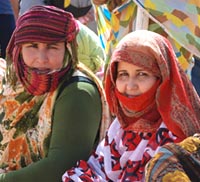
Archives


Honduran Coup: The U.S. Connection

Gaza’s Kite Runners
When seen from a distance, kites in

Why We Should All Boycott Union Busting Beer Corporations
When Obama sat down for a beer in the White House Rose Garden with Professor Gates and Sergeant Crowley, they all turned their backs on the smaller, craft brewers of the country. Obama chose Bud Light, Gates asked for Red Stripe, and

Why Food Inc. Fails: Documentary Bites Off More Than It Can Chew
After six years in the making, Robert Kenner's Food Inc. made it onto the silver screen just in time for this summer's harvest. Directed and produced by Kenner himself, and co-produced by the author who brought us Fast Food Nation, investigative journalist, Eric Schlosser, Food Inc. explores the modern diet alongside the agriculture-industrial-complex responsible for the sugary/salty/fatty provender manufactured to mollify modern dieters.

